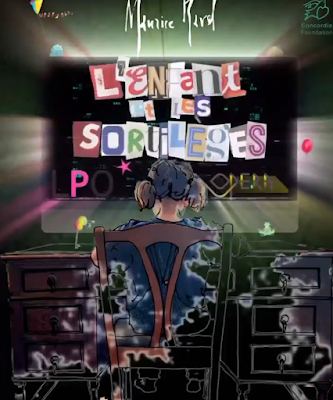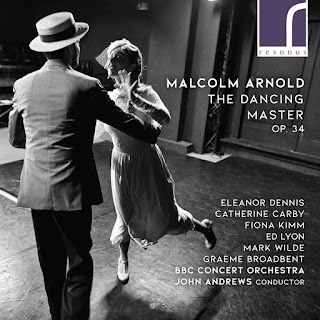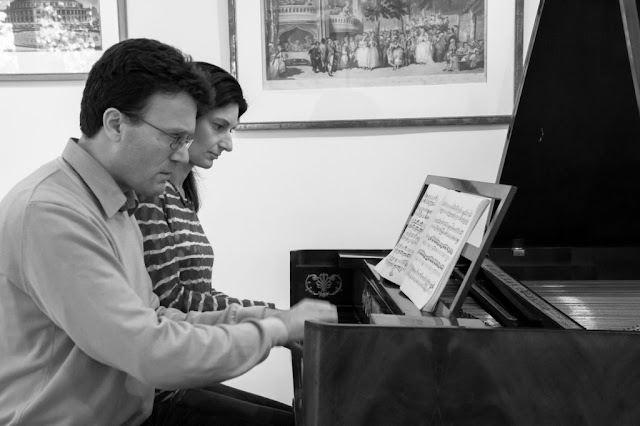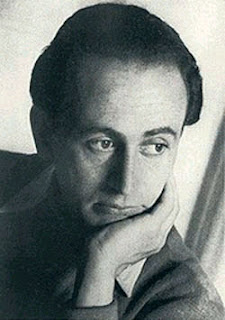| Stravinsky: The Rake's Progress - Ashley Riches, Nicky Spence, Francesca Chiejina Blackheath Halls Opera |
Tenor Nicky Spence is patron of Blackheath Halls Opera, the community opera company based at Blackheath Halls and in ordinary circumstances this year would have found him in his advisory role as an 'enthusiasm machine' whilst the company prepared and performed. Instead, he has headlined an imaginative short film, released by the company last month, a digested version of Stravinsky's The Rakes Progress directed by James Hurley [A Journey through 'The Rake's Progress' on YouTube], as well as producing a regular on-line series for the company, Thursday Nights in with Nicky Spence. The fact that Nicky and I live within easy cycling distance of each other meant that we were able to meet up recently for a socially distanced coffee and chat about his work with Blackheath Halls Opera and The Rakes Progress as well as catching up on his plans, singing more dramatic roles, the importance of diction and his love of recitals.
Nicky has sung the role of Tom Rakewell in Stravinsky's opera twice before, once with British Youth Opera in 2009 (when George Hall in The Guardian described his Tom as having 'an almost indecent willingness to fall from grace') and then in concert with Scottish Opera. Now for Blackheath Halls Opera it was done as a 30-minute film. In fact, having to do it as a film was an advantage as the company would not usually be able to perform a work like The Rakes Progress because there would not be enough time to learn the complex staging needed for the chorus scenes. And having an on-line project this year meant that the members of the chorus could get something of what they were missing with live rehearsals and performances cancelled, being part of a gang and the experience of learning as group. The soloists were filmed in a socially distanced manner, though the project had contingencies on contingencies in case things changed. But in the film, this social distancing is not noticeable as the filming disguises it. In fact, they were lucky, because it turns out the opera director James Hurley has a past as a film maker, so he was able to direct the work for film.
 |
| Wagner: Parsifal - Nicky Spence, the Hallé, Sir Mark Elder - York Minster |
The resulting work A Journey through The Rake's Progress is very definitely a film, rather than a film of a stage performance, which has many advantages. Whilst film is not a replacement for live performance, Nicky feels that the project was a great opportunity to get people together in the present circumstances, not just the members of the chorus but the professionals too.




































